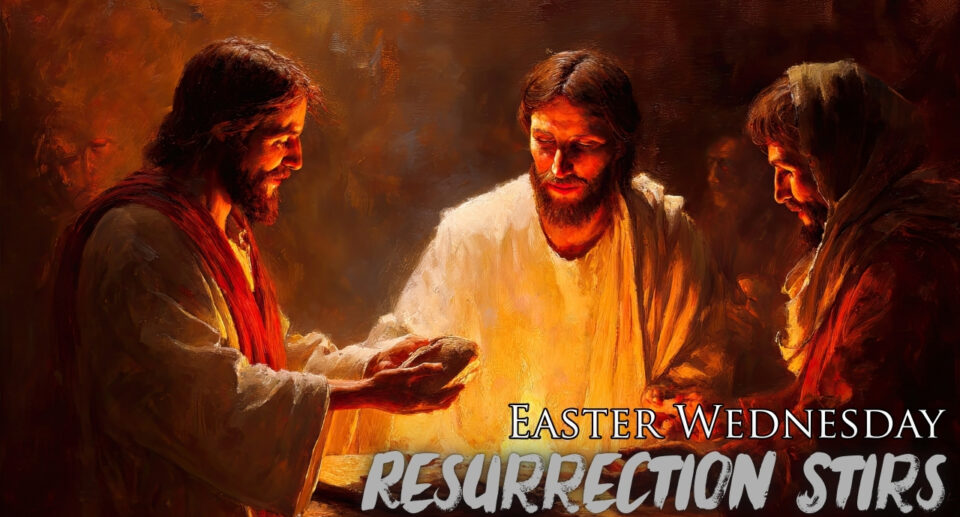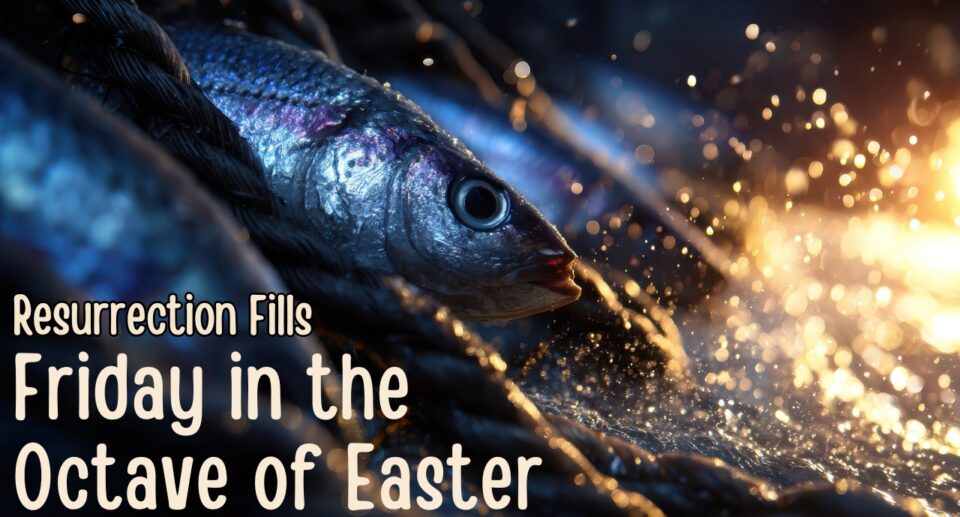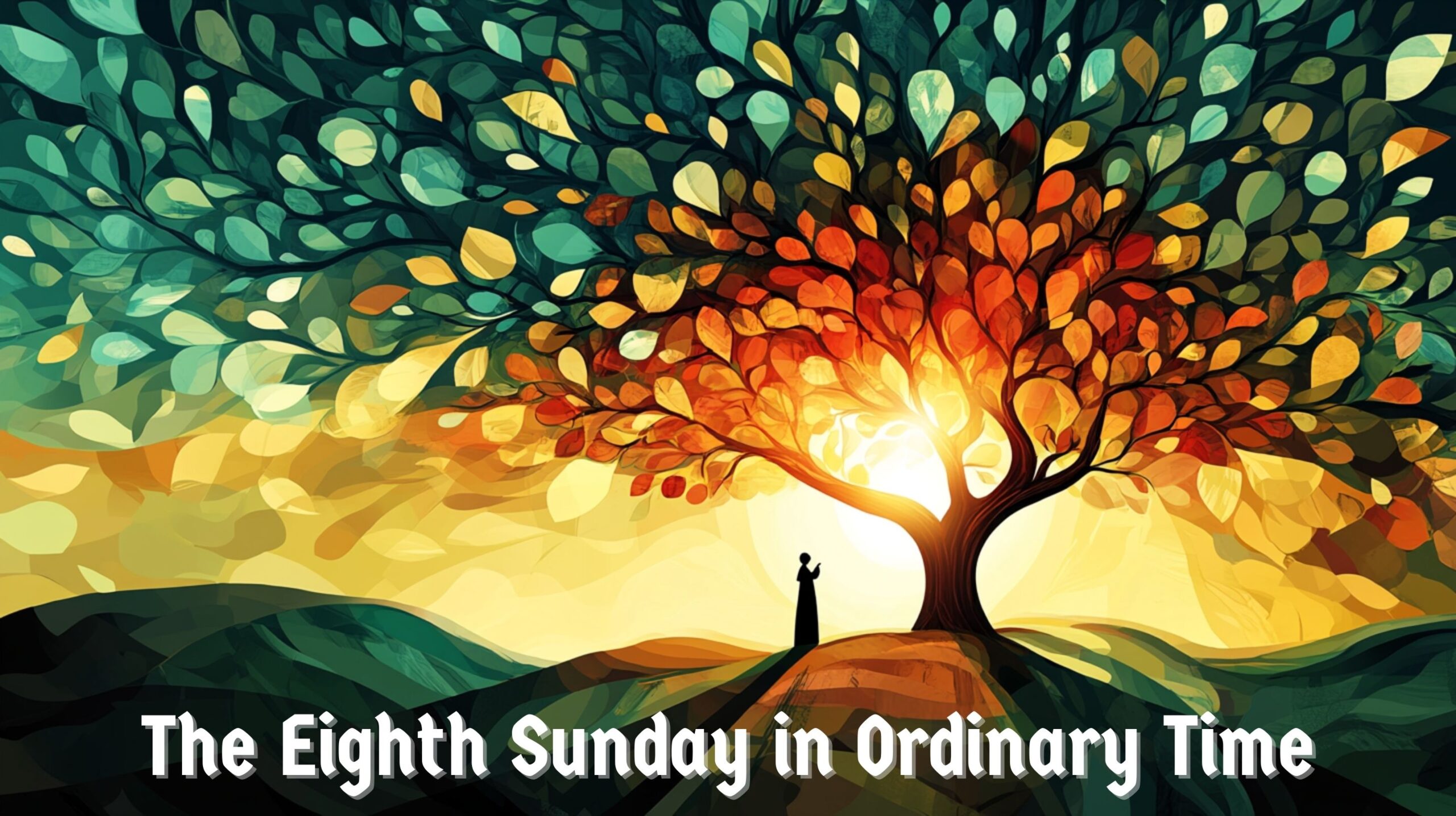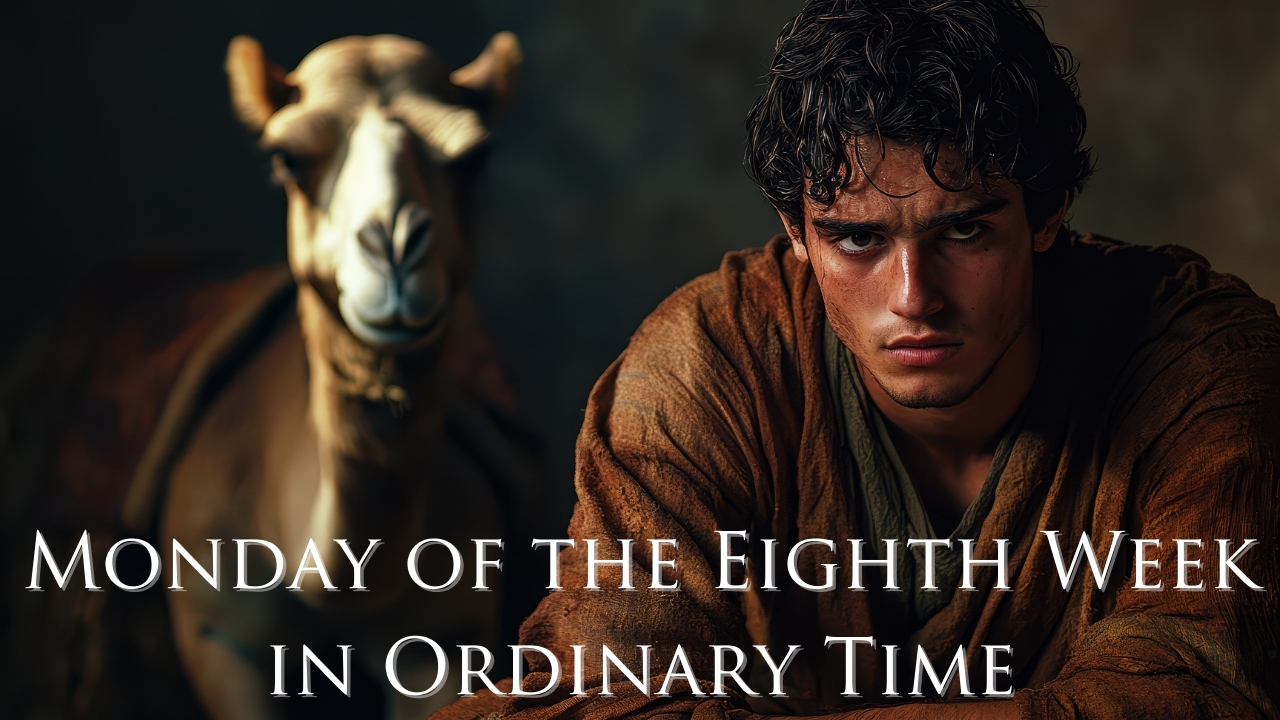Flesh, Bones, and Broiled Fish: The Scandal of a Physical God | Easter Thursday | April 24, 2025
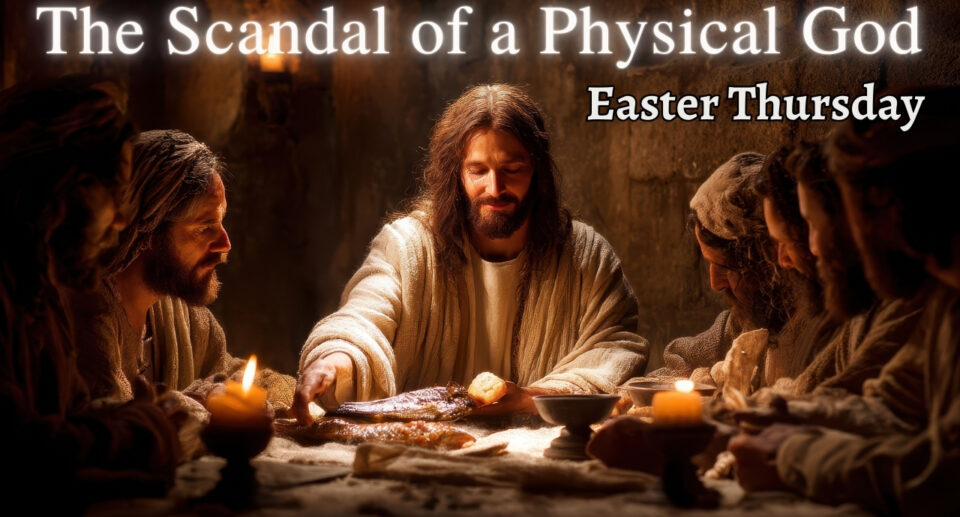
When Jesus appears to his terrified disciples, he doesn’t offer theological explanations. Instead, he invites physical touch and asks for something to eat. This scandalous physicality challenges our spiritualized faith and changes everything about how we live as Easter people.
Through this reflection, you’ll discover:
- Why Jesus eating fish is the most revolutionary detail in the resurrection stories
- How physical resurrection transforms our approach to creation, justice, and worship
- Why God remains committed to matter even after conquering death
- Where to encounter the risen Christ in your embodied life today
Readings covered: Acts 3:11-26; Psalm 8:2ab and 5, 6-7, 8-9; Luke 24:35-48
#EasterOctave #PhysicalResurrection #GodWhoEats #EasterThursday #TouchAndSee
Flesh, Bones, and Broiled Fish: The Scandal of a Physical God
They thought they were seeing a ghost.
Can you blame them? Their teacher had been brutally executed. They’d watched him die. And now, somehow, he was standing among them despite locked doors and barred windows.
A ghost made sense. A comforting spiritual presence. A memory so powerful it took visible form.
But Jesus immediately challenges this comfortable interpretation: “Touch me and see; a ghost does not have flesh and bones as you see I have.”
Then comes my favorite detail in all the resurrection accounts – Jesus asks, “Have you anything here to eat?” They give him broiled fish, and he eats it in front of them.
Not exactly otherworldly behavior, is it? Ghosts don’t get hungry. Spirits don’t eat fish. Metaphors don’t have digestive systems.
This moment reveals something astonishing about God – a love affair with physicality. The Word became flesh not as temporary accommodation but as permanent commitment. Resurrection doesn’t abandon bodily existence but transforms it from within.
This was scandalous in Jesus’ time. Greeks considered bodies prisons for souls, matter inherently inferior to spirit. Many Jewish thinkers expected resurrection only at the end of time, not as mid-history event. Both would have found the idea of a divine being consuming broiled fish somewhere between absurd and offensive.
It’s still scandalous today. We’ve spiritualized faith, reduced it to concepts, principles, values. We’re comfortable with Jesus as inspiring teacher, spiritual presence, or transcendent ideal. But Jesus with a digestive system? Christ with an appetite? God who treasures physical creation enough to remain part of it eternally?
That’s harder to domesticate.
Yet this physical resurrection changes everything about how we live as believers.
It means creation matters profoundly. A God who eats fish after conquering death is a God deeply committed to the physical world. The environmental crisis isn’t just political issue but theological emergency – an assault on what God has permanently joined himself to through incarnation and resurrection.
It means our bodies matter. Christianity isn’t about escaping physical existence but transforming it. How we treat our bodies and others’ bodies becomes spiritual act. Justice, healthcare, housing, food security – these aren’t distractions from “spiritual matters” but central concerns for a faith founded on embodied resurrection.
It means worship involves all our senses. The early church gathered around meals, touched each other in blessing, kissed in greeting, shared bread and wine. They understood that following a God who ate broiled fish meant engaging faith with whole bodies, not just minds.
In today’s first reading, Peter addresses the crowd after healing the lame man: “The author of life you put to death, but God raised him from the dead.” This wasn’t spiritual metaphor but witnessed reality: “Of this we are witnesses.”
Peter doesn’t minimize their involvement in Jesus’ death. But he immediately offers hope: “Repent and be converted, that your sins may be wiped away.” The physically risen Christ extends forgiveness even to those who killed him. The wounds remain in his resurrected body, but their meaning transforms from accusation to invitation.
Our psalm celebrates this extraordinary value God places on physical creatures: “O LORD, our Lord, how glorious is your name over all the earth! What is man that you should be mindful of him? You have made him little less than the angels, and crowned him with glory and honor.”
Despite humanity’s worst action – crucifying divine love – God continues to treasure us, restore us, work through us. Resurrection affirms creation’s value and humanity’s potential not by ignoring our capacity for evil but by transforming it from within.
So how do we live as Easter people in light of this physical resurrection?
Maybe start with an intentional meal. Slow down. No phones. Real conversation. Simple food shared with genuine presence. Remember that the risen Christ was recognized in breaking bread, in broiled fish, in lakeside breakfast. Create space in ordinary meals for extraordinary recognition.
Or try a prayer walk. Let your body participate in prayer through movement. Notice spring emerging around you. Touch tree bark, smell flowers, hear birds. The God who rose with physical body delights in your physical connection with creation.
Perhaps most challenging, look for Christ in faces you’d rather avoid. The God who ate with disciples also identified with hungry, sick, imprisoned, homeless. “Whatever you did for the least of these, you did for me.” Encountering bodies in need becomes encounter with Christ himself.
Luke tells us Jesus “opened their minds to understand the Scripture.” Physical resurrection gives us new lens for reading sacred texts. Not disembodied spirituality but embodied transformation. Not escape from creation but renewal within it. Not rejection of what’s broken but healing that preserves identity.
The risen Christ still bears his wounds. They’re not erased but transformed from sources of pain to evidence of love’s ultimate victory. Our wounds too – whether physical, emotional, relational – need not be hidden but can become, through resurrection power, our most authentic witnesses to healing that doesn’t deny suffering but redeems it.
Christ is risen – not as ghost, concept, or memory, but as physical reality who transforms everything he touches while remaining recognizably himself. The one who defeated death still reaches across time with wounded hands offering broiled fish.
Touch and see.

